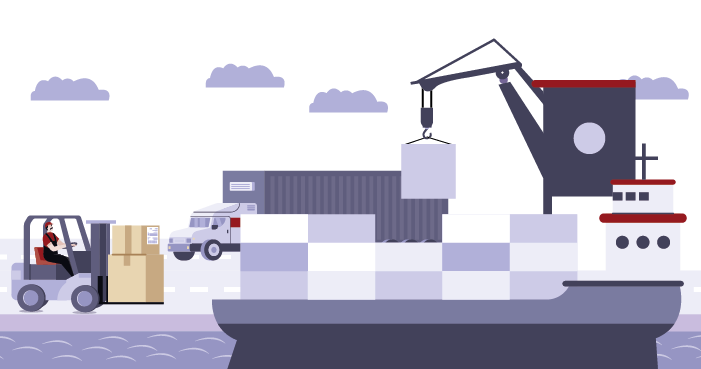Here’s our comprehensive guide to help you navigate the global wine market.
The global wine market is booming. According to a recent report by the market research firm OIV (International Organisation of Vine and Wine), France, Italy and Spain dominate the global wine trade.
This year, more than 1.9 billion bottles were exported from France to over 200 countries. This performance was largely driven by increased demand for sparkling and rosé wines in key markets such as the United States, China and Japan. If you want to ship wine overseas, there are several things to consider before deciding where and how you will ship it.
Consider the shipping restrictions for your home country.
If you are planning to shipping wine abroad, it is important to know the restrictions in your home country. Some countries require a license to export wine and may be
limited by volume or value. If you are shipping small quantities of wine, there may be no restrictions. In addition to these legal requirements, there are also import/export and quantity regulations that vary from country to country depending on the destination you are shipping to. Il s'agit notamment des limites de valeur et des taxes sur l'alcool importé que vous devez payer à votre arrivée au port ou à l'aéroport de destination.
Find out about shipping to key markets.
You should also be aware of the trade agreements between your country and the destination you are shipping to. The agreement usually contains rules on what can be shipped, duty rates,
taxes and other charges. You should also find out if there are any restrictions on shipments of wine and spirits. Even if you have permission from customs to ship alcoholic products, there may be restrictions in another country, so it's wise to check before planning a shipment. These restrictions include value limits and taxes on imported alcohol, which you must pay on arrival at the destination port or airport.
- You can get information directly from the French customs website which lists the restrictions on the sale of wine abroad.
- knowing the taxation of your product for export
- check your registration with customs: EORI number
- Moreover, it is advisable to contact directly the customs service of the destination country in order to know the specific conditions of export of your wines and spirits.
In some countries, shipping red wine, white wine, sparkling wine, beer or whisky does not have the same specificity. From one appellation to another, the export of wine is very specific and requires precise procedures.
Understanding the U.S. wine import market.
As the world's largest importer of wine, it's no surprise that the U.S. is also one of the best markets for wine exporters to focus on. The U.S. imports more than $1 billion worth of wine each year and has been responsible for the import and sale of more than 60 percent of all French wines sold worldwide since 2000. If you are looking to export your products into this market, it is important to be aware of the
Three-Tier System, which imposes certain rules on each state.
When shipping to North America, you need to be registered with the FDA, otherwise as a shipper you could find your products blocked by customs. It is also mandatory to issue a Prior Notice and to obtain a COLA or COLA waiver to ship to the US. It will also be necessary to provide a certificate of origin for Champagne, Cognac, Armagnac, Jerez and Spanish Brandy to export to the United States.
International shipping is easier than you think.
There are several ways to shipping your wine abroad, but the most convenient method is to rely on a
freight forwarder. This means that he will take care of everything for you, starting with the price negotiation, the coordination of the different parties involved in a shipment from pick-up to delivery, including insurance and customs formalities at the other end of the world. Some destinations are more restrictive than others to export your best vintages.
For a tasting, a show or a sale, the export authorizations will be different. It is essential to fill in the type of alcohol, the number of bottles, the appellation, the alcohol degree, the color of the wine, the vintage, the customs nomenclature code, the customs value, the type of shipment desired or the temperature of the truck or container during transport.
Shipping wine and spirits abroad directly through carriers requires extensive regulatory knowledge. We recommend that you use the services of a professional who will take care of all the regulatory details of your shipments.
There are important factors to consider at each stage of the shipping process.
Shipping wine internationally is easier than you think, but there are important factors to consider at every step of the process. You need to know the
rules and regulations of your home country, the key markets and what it will cost. You also need to know the regulations of the country you are shipping to and you need to select the best way to transport your bottles. Be sure to provide all the necessary documents to customs for your international exports.
Hillebrand Gori eShipping,
freight forwarder, facilitates the work of winegrowers, merchants, cooperative wineries and export agents by taking care of the transportation of their wines and spirits, in France and worldwide. Our mission is to anticipate any possible blockage and to manage for you all the constraining regulatory aspects.

